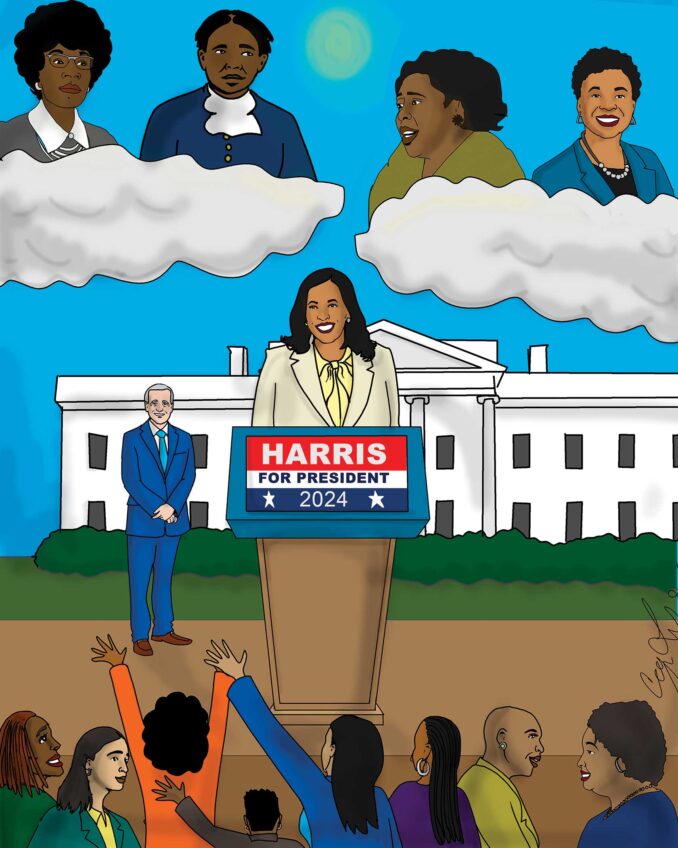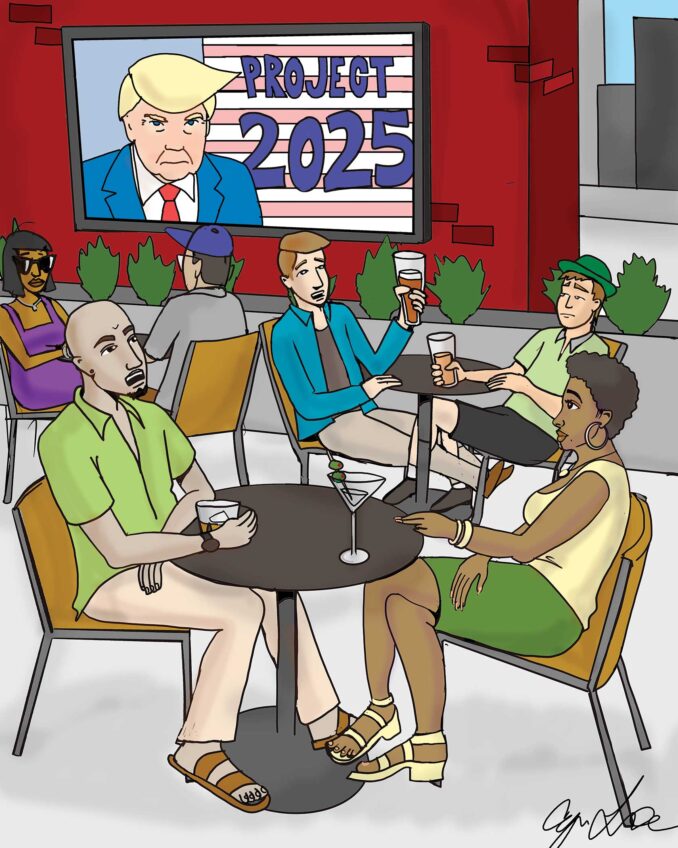All eyes have been on Georgia’s blatant effort to shove the state permanently back in the red-state column with its unabashed Jim Crow-style vote-suppression ploy. But this is just the warmup for the GOP’s main act, to once and for all erase from the books the 1965 Voting Rights Act.
Since its enactment, the party has railed against it. The first point of attack was a loophole in the Act: It must be renewed every 25 years.
In 1981, there were loud grumbles and idle threats from some top Reagan administration officials. They wanted Reagan to pause on signing the renewal legislation. He didn’t. A quarter-century later, the GOP legislator protests were louder, and demands were made for President Bush not to sign the renewal. There was even the threat to delay or block passage in Congress. Though Bush signed the renewal of the Voting Rights Act in 2006, a core of House Republicans dragged their feet on the legislation and demanded that hearings be held. They used the same old argument that it punishes the South for past voting-discrimination sins. They also didn’t like the idea of bilingual ballots.
Bush ignored the saber-rattle and signed. The renewal by two conservative GOP presidents seemed to assure that the effort to scrub the Act from the federal books was a pipe dream.
In 2013, the SCOTUS agreed to hear a federal lawsuit by Shelby County, Alabama, that had quietly worked its way up through the appeals courts. The county wanted much of the Act dumped, arguing that it is outdated, discriminatory and a federal intrusion into states’ rights. In times past, this claim would have gone nowhere. But 2013 was different. The SCOTUS now had a conservative majority. Meanwhile, several state attorneys generals endorsed the Alabama county’s challenge. And then-Attorney General Eric Holder’s announcement that he’d vigorously enforce all provisions of the Voting Rights Act to prevent voter suppression ignited more GOP fury. The predictable happened: The SCOTUS struck down the provision that especially riled the GOP, the one mandating prior federal approval of changes to voting procedures in parts of the country with a history of racial and other discrimination. The discrimination targets were Black and Hispanic voters, whose numbers were growing, with the result that states in the South and Southwest that had long been locked in the GOP vote column were now, from the GOP’s standpoint, in danger of flipping Democrat.
Georgia was the tipping point. The shock of losing the state to Biden, followed by the even greater shock of losing two GOP-held Senate seats to Democrats was too much for the party to stomach. The SCOTUS this time will rule on the other provision of the Act that’s been a major GOP sore point, section 2. It permits legal challenges to racial discrimination in voting procedures. It plainly states that minorities “have less opportunity than other members of the electorate to participate in the political process and to elect representatives of their choice.”
The GOP has already pecked away at the Act with photo ID laws enacted by GOP governors and GOP-controlled state legislatures. They have one aim, to discourage the number of minority and poor voters that overwhelmingly vote Democratic.
Despite solid bipartisan support for the Act in prior congresses and from GOP presidents, the Act has always been more controversial than many have believed. The popular myth is that congressional leaders were so appalled at the shocking TV clips of Alabama state troopers battering civil rights marchers in Selma in April 1965 that they promptly passed the landmark law restoring voting rights to Southern blacks. What’s forgotten is that the marchers were there in the first place because the bill was badly stalled in the Senate and the House. It took nearly five months to pass it.
Then-Senate minority leader Illinois Republican Everett Dirksen heaped amendments on the bill that included scrapping the poll tax ban, adding exemptions and escape clauses for Southern counties, and excluding all states outside the South. House Republicans weakened it with more amendments. The amendment fight dragged on for weeks in Congress.
Now, with the real danger that the SCOTUS will further gut the Act, and hundreds of voter suppression laws proposed in dozens of states, the GOP may get its long-standing goal of a final burial of the Voting Rights Act. Their win would be democracy’s loss.
Earl Ofari Hutchinson is an author and political analyst.






